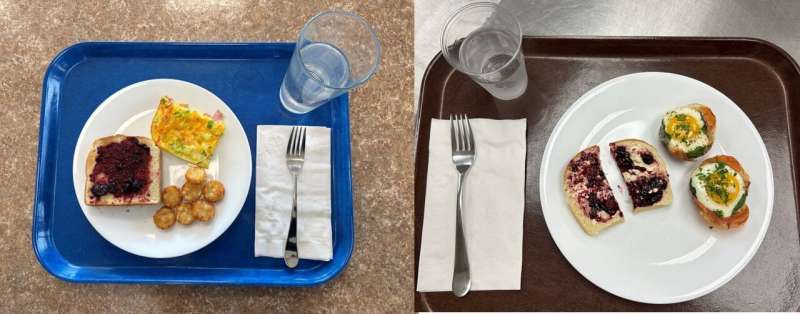This article has been reviewed according to Science X's editorial process and policies. Editors have highlighted the following attributes while ensuring the content's credibility:
fact-checked
trusted source
proofread
Limiting ultra-processed foods does not necessarily make for a healthy diet, study reveals

A new study demonstrates that eating primarily minimally processed foods, as they are defined by the NOVA classification system, does not automatically make for a healthy diet, suggesting that the types of foods we eat may matter more than the level of processing used to make them.
Comparing two menus reflecting a typical Western diet—one emphasizing minimally processed foods and the other emphasizing ultra-processed foods, as categorized by the NOVA classification system—the researchers found that the less processed menu was more than twice as expensive and reached its expiration date over three times faster without delivering any additional nutritional value.
"This study indicates that it is possible to eat a low-quality diet even when choosing mostly minimally processed foods," said Julie Hess, Ph.D., a research nutritionist at the USDA-ARS Grand Forks Human Nutrition Research Center, who led the study. "It also shows that more-processed and less-processed diets can be equally nutritious (or non-nutritious), but the more-processed diet may have a longer shelf life and be less costly."
Mark Messina, Ph.D., director of nutrition science and research at Soy Nutrition Institute Global, presented the findings at NUTRITION 2024, the flagship annual meeting of the American Society for Nutrition held June 29–July 2 in Chicago.
The new research builds on a study the team published last year, which demonstrated that it was possible to build a high-quality menu that aligns with dietary guidelines while deriving most of its calories from foods classified as ultra-processed. For the new study, the researchers asked the opposite question: Is it possible to build a low-quality menu that derives most of its calories from "simple" foods?
To find out, they constructed a less-processed menu, which derived 20% of its calories from ultra-processed foods, and a more-processed menu, which derived 67% of its calories from ultra-processed foods. The level of processing involved in each menu was determined according to the NOVA system of classification.
The two menus were calculated to have a Healthy Eating Index score of about 43-44 out of 100, a relatively low score that reflects poor adherence to the Dietary Guidelines for Americans. The researchers estimated that the less-processed menu would cost $34.87 per day per person compared with $13.53 per day for the more-processed menu. They also calculated that the median time to expiration of the less-processed menu items was 35 days versus 120 days for the more-processed menu items.
The study draws attention to the disconnects between food processing and nutritional value. Hess noted that some nutrient-dense packaged foods can be classified as ultra-processed, such as unsweetened applesauce, ultrafiltered milk, liquid egg whites and some brands of raisins and canned tomatoes.
"The results of this study indicate that building a nutritious diet involves more than a consideration of food processing as defined by NOVA," said Hess. "The concepts of 'ultra-processed' foods and 'less-processed' foods need to be better characterized by the nutrition research community."
Please note that abstracts presented at NUTRITION 2024 were evaluated and selected by a committee of experts but have not generally undergone the same peer review process required for publication in a scientific journal. As such, the findings presented should be considered preliminary until a peer-reviewed publication is available.
More information: Messina presented this research at 12:45–1:45 p.m. CDT on Sunday, June 30, during the Food Choice, Markets and Policy poster session in McCormick Place (abstract; presentation details).




















